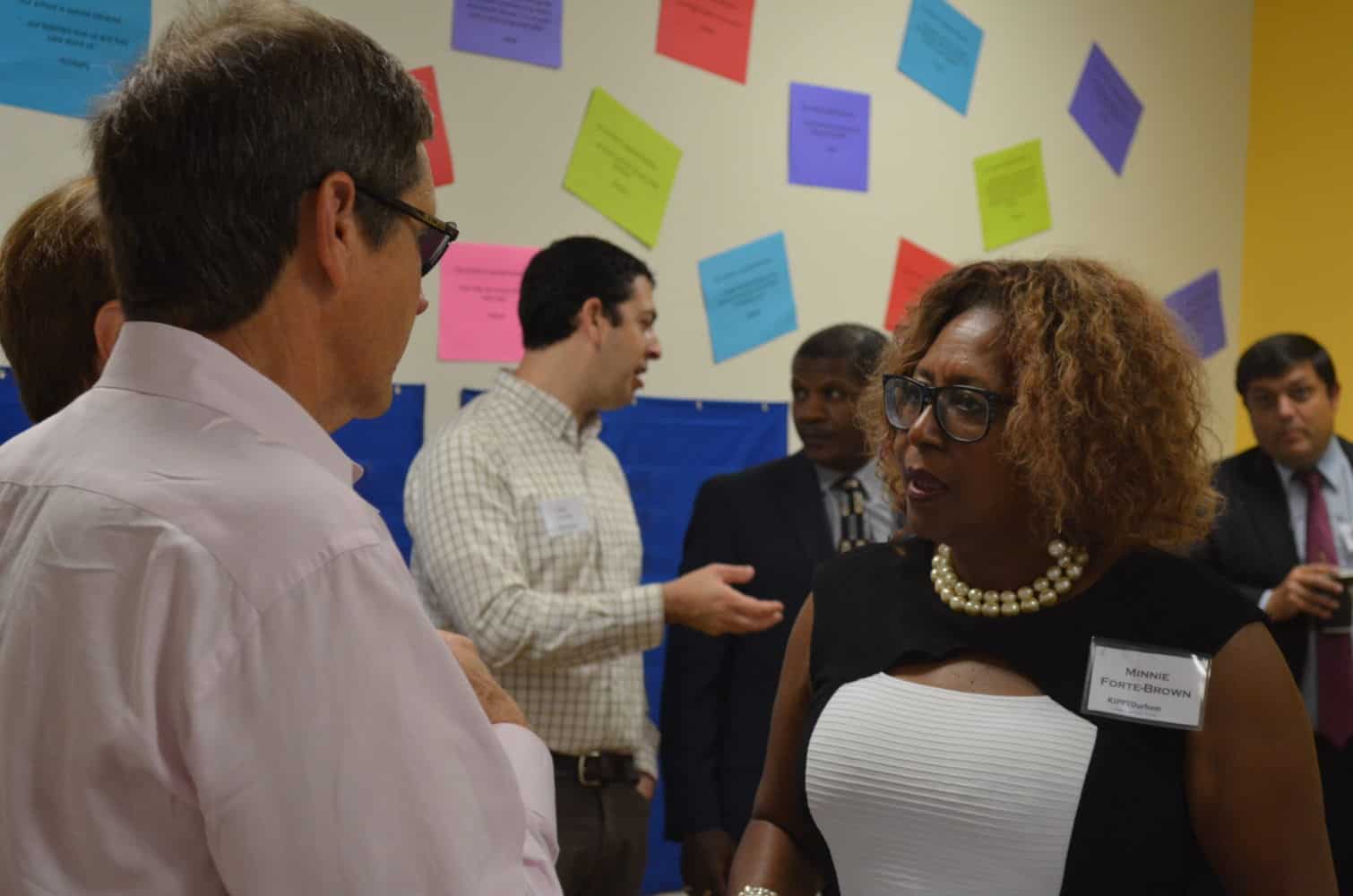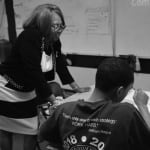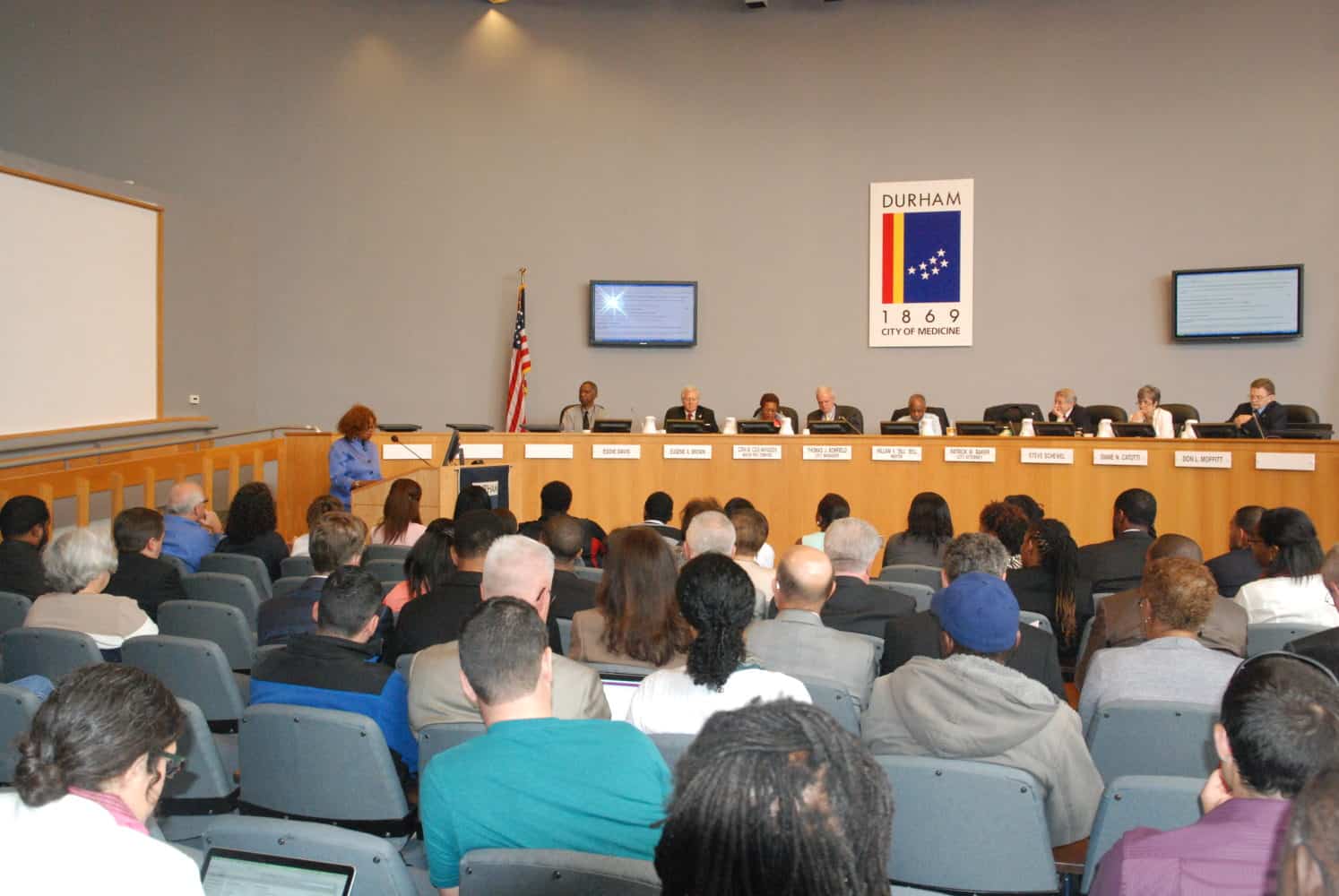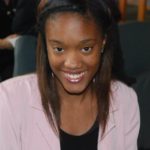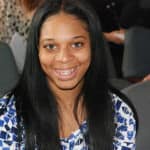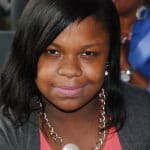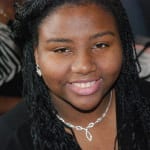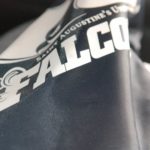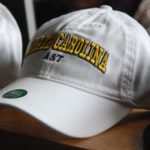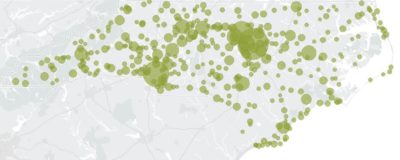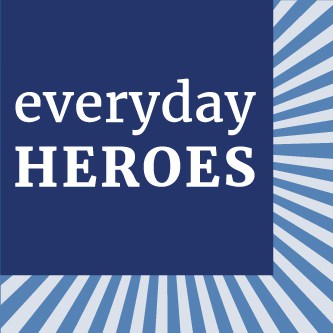

Minnie Forte-Brown has been on the Durham Public Schools Board of Education since 2004. She is the immediate past president of CUBE, the national Council of Urban Boards of Education. She is the vice president of KIPP ENC, which has charter schools in Northampton County, Halifax County, and Durham.
When I ask her about her work with KIPP ENC, she says, “What I want is Durham schools that are excellent. A system of schools versus a school system.”
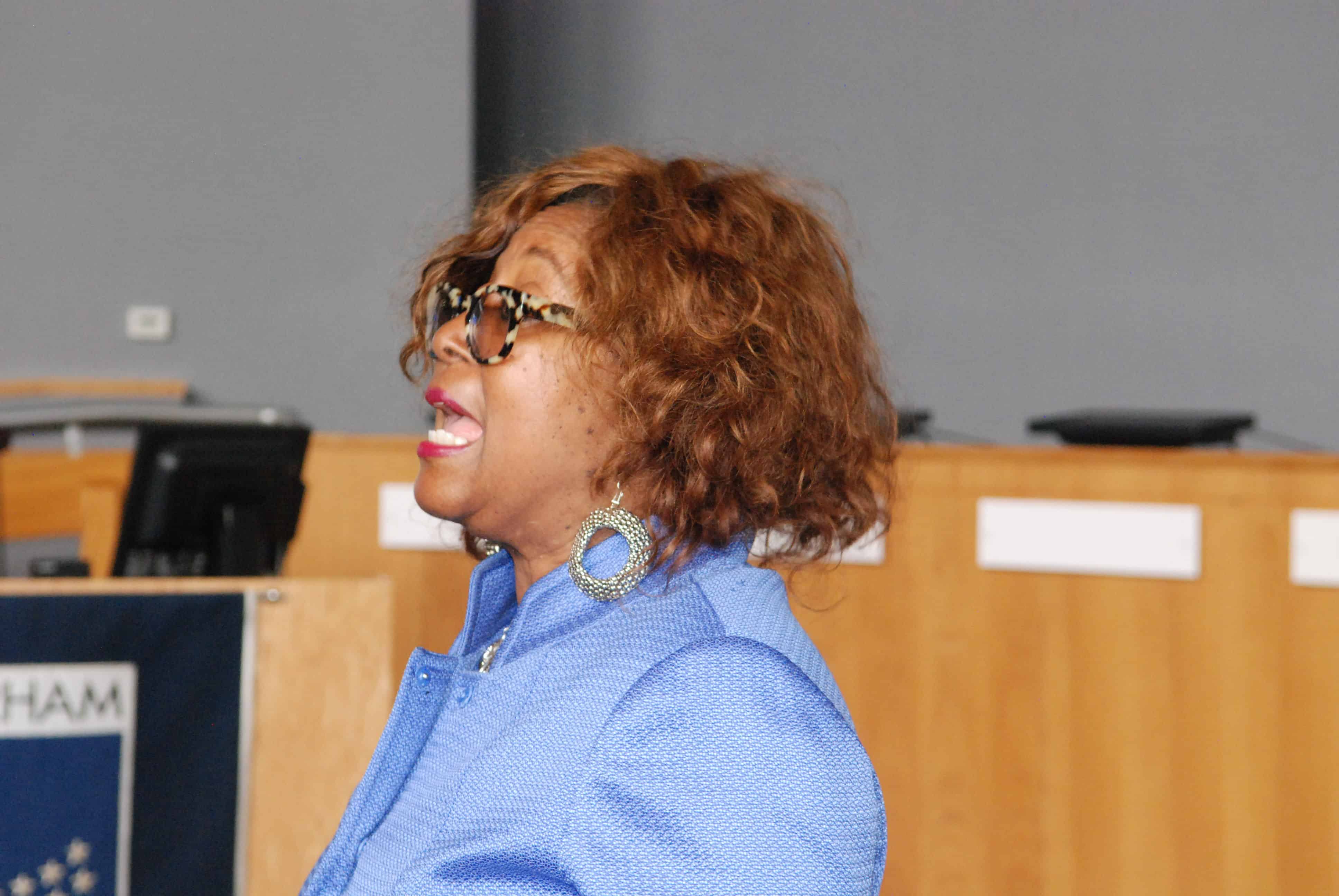

In Forte-Brown’s work with CUBE, she met Alberto Carvalho, the superintendent of Miami-Dade County Public Schools. He told her, “The tsunami is coming. You are going to have to ride it.” She began to think of charter schools differently. She began to see the benefits of joining with charters, of public school systems starting their own charters, of trying to get all the schools that were serving children well to cooperate.
As she says, “I could see where this thing is going.”
“Our children,” and by that she means black children, “are always the ones at the bottom.” And as long as Johnny still can’t read, Forte-Brown seems open to any and all solutions.
This is not the first time Forte-Brown has tried to bridge relationships in her community.
The Durham Public Schools Board of Education
When Forte-Brown joined the Durham School Board in 2004, she says, “we had lost the focus of the children.” Antics at the board meeting, according to Forte-Brown, provided entertainment, but had nothing to do with the children and their academic success.
“We’ve got to do better.
Our community expects us to do better.
Our children deserve better.”
Forte-Brown felt called to speak out, but she was new to the board, and it was the first time anyone on the board had commented publicly about the behavior of the board. She wanted civility. She wanted to move the needle for the children. She wanted strategies and policies that would work. She got it.
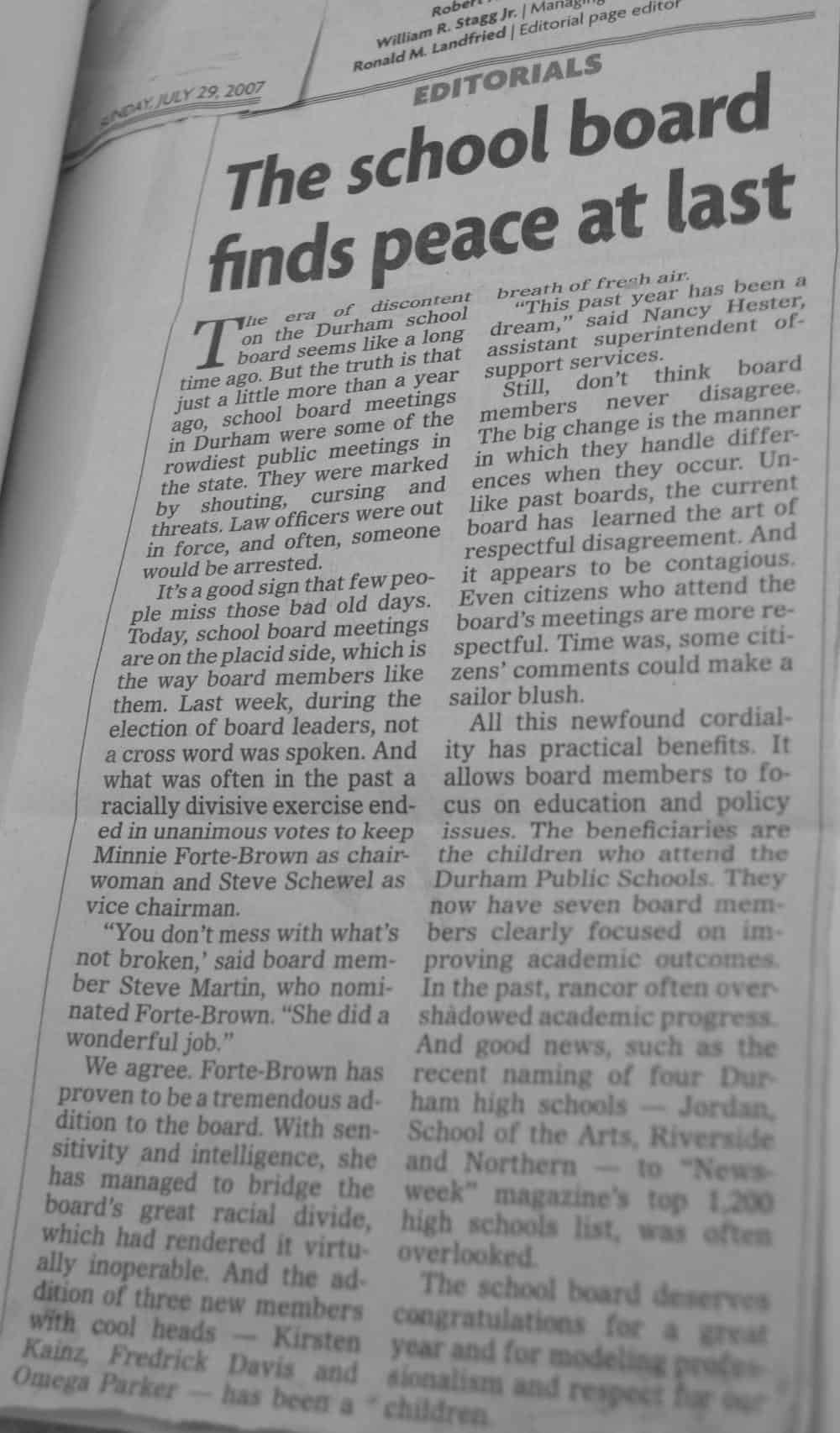

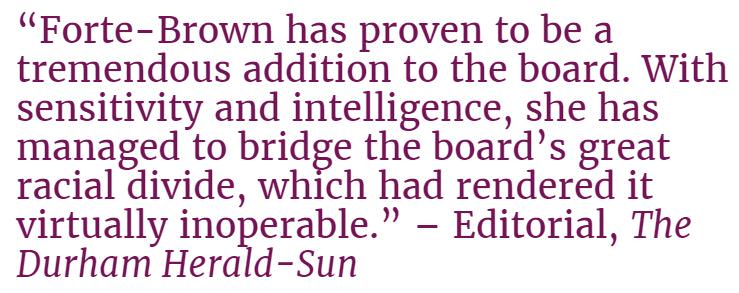

KIPP
Forte-Brown is a co-founder of the East Durham Children’s Initiative (EDCI). In the fall of 2015, KIPP ENC expanded to Durham.
Tammi Sutton, the executive director, of KIPP ENC, says when asked about moving into Durham, “Of course we want all public schools to do well. Us getting better will hopefully make others get better.” She notes that “So many people are like ‘That’s cute in Gaston, but can you do it in a city?'”
The KIPP Durham website says, “By working with community organizations and leaders, KIPP Durham’s staff, students and families create a high-quality, college prep option for students in East Durham and continues to strengthen the community.” Forte-Brown is one of those leaders. KIPP stands for Knowledge is Power Program.
In May 2015, Forte-Brown and other policymakers visited KIPP Gaston ahead of the move into Durham.
From the moment she entered the school, Forte-Brown was all about the students – checking planners and assignments, taking notice of student art, and working through the harder issues of discipline and responsibility.


“I don’t see discipline as a problem,” says Forte-Brown. She sees it as an opportunity.
At KIPP Gaston, if a student makes a mistake, they are “benched.” They wear a white shirt, and for at least three days reflect on the need to meet expectations. According to Sutton, “it’s an alternative to sending students home, in the hopes of keeping students who are struggling with behavior in school and in class learning.”
“The expectations are clear,” says Forte-Brown. “The consequences are clear.” She says, “This school is setting the stage for greatness,” instead of just punishing students. She sees KIPP students learning about respect, learning about discipline, and beginning to understand that it is a privilege to learn. “Our children are capable,” she says, “and they deserve to feel accomplishment, success, and confidence.”
Durham’s Poverty Reduction Initiative
Forte-Brown wants to “create a pipeline out of poverty and education is the most viable, accessible, attainable and reliable way to do it.”
In Durham, the Mayor established a Poverty Reduction Initiative to look at reducing poverty, supporting services, and building wealth in a low-wealth area of the city, Census Tract 10.01. Forte-Brown was asked to co-chair the Education Task Force. According to a May 19, 2015, memo to the City Council, the task force is working to “create a pipeline out of poverty and education is the most viable, accessible, attainable and reliable way to do it.” The task force has four priorities: early childhood, middle school challenges, college readiness and persistence, and family collaboration/sustainability.
I met with Forte-Brown at a coffee shop to talk about the initiative. She was carrying a notebook. This year she has coached 19 students from Southern High School with the goal of getting them to and through college. Ten make it to college admission. She says, “there are a lot of talented, gifted kids that won’t get to postsecondary because nobody touched them.”
Her notebook has an intake sheet on each student prepared by Forte-Brown. She has been tracking their progress to college admission every step of the way. The day we meet she is late because one of her students needed a ride to school.
On June 4, 2015, Forte-Brown presented her “Southern Scholars” to the City Council.
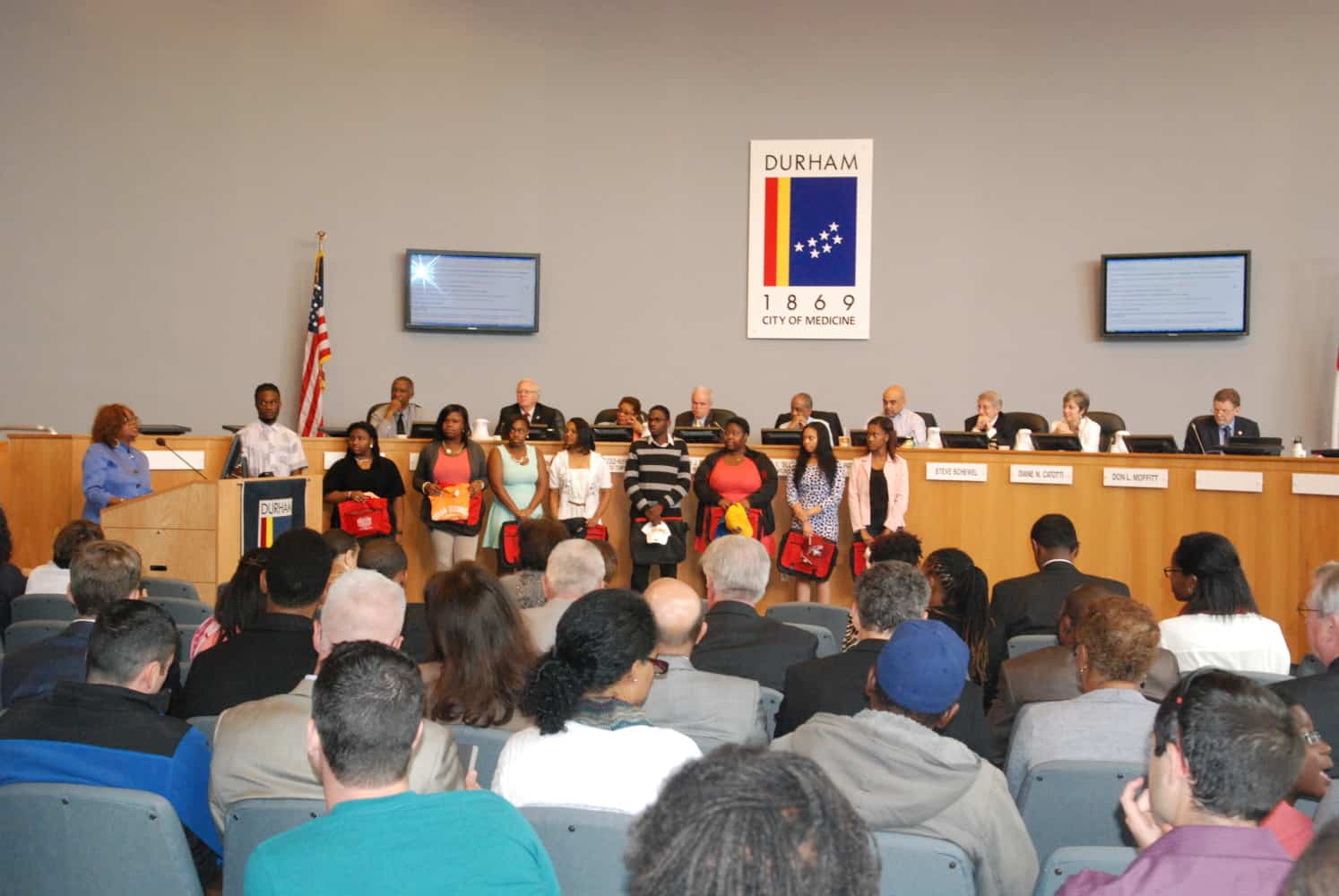



Before the meeting, Forte-Brown greets each of the students personally. When speaking to the City Council, she asks them to enunciate clearly the name of their university, to project their voice. She is teaching them pride, she says.
Forte-Brown says to me at the conclusion of the meeting, “We have to raise student achievement. That is job one.”
Building Bridges
2016 marks the 20th anniversary of charters in North Carolina, and there are 15 charters serving the Durham community. Using average daily membership in the final month of 2014, charters held about 14 percent of the public school market.1 By being on the school board in Durham and on the board of KIPP ENC, Forte-Brown hopes and works for what she always has: civility and progress.
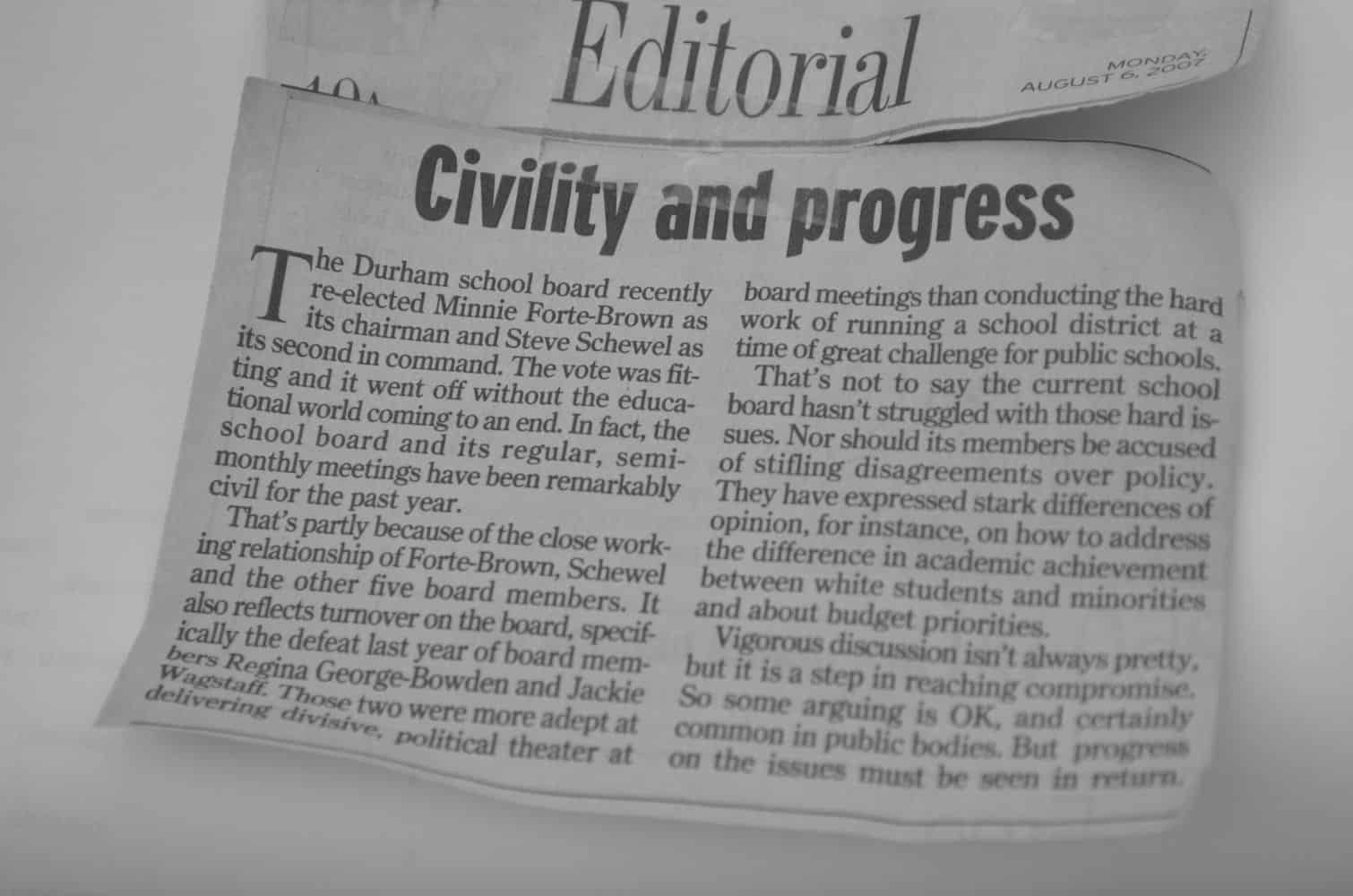



The issues aren’t easy. In my conversations with Forte-Brown, she hones straight in on the points of tension. She calls them glitches.
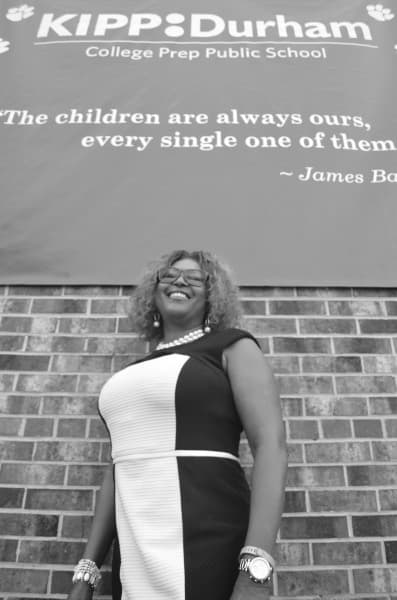

“Charters must share in the education of all children regardless of ethnicity, regardless of ability, regardless of geography,” she says. She wonders about charter school growth and whether the market share of charters should just settle out by community demand or whether it should be driven — decide what the optimum number of students served by charters is and then limit it to that number at least for awhile creating some stability and predictability for the school system. She supports “fair funding,” and when I ask her to define fair, she says, “the money should follow the kid.” Forte-Brown goes on to explain: “When I talk about money following the kid, what I mean is that the State needs to provide the necessary financial resources to provide ALL public school students, traditional and charter, the opportunity to receive an excellent education. I absolutely reject the notion of favoring one group of students at the expense of the other. This destroys the kind of collaboration, civility, and progress I am advocating between traditional and charter schools.”
At KIPP, when students ask a hard question, the teachers say, “thanks for the bravery.” Students across Durham might say the same to Forte-Brown. As she helps us think about systems of schools versus school systems and what that might look like in the 21st century across North Carolina, she certainly is asking the hard questions.
